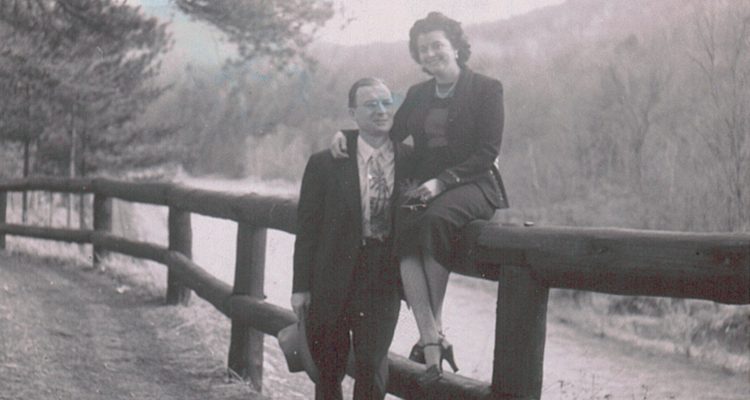Author’s note: Much of the information in this two-part article is sourced from Doc Williams’ own accounts of his life in his biography, “A Country Music Legend — Doc Williams — Looking Back.” (Published by James Thorton: Creative Impressions.) Thank you to Doc and Chickie’s daughter, Barbara Smik, who was also the editor of her father’s biography, for allowing the use of this book as reference, the access to so many incredible photos and for being a wealth of knowledge for this article. We hope this article will inspire you to re-listen to Doc and Chickie Williams’ brilliant recordings and learn more about their lives through this book or other sources.
During the Great Depression, young Andrew Smik, who would later take the stage name of Doc Williams, was sent to his grandmother’s home in Cleveland as a means of saving money for the rural family. In the cold Cleveland winters, he would arise at 5:30 a.m. to deliver the Cleveland Plain Dealer. Later, he would sell papers in his parents’ little rural village of Tarrtown, Pennsylvania. One can imagine this was where some of the seeds of his entrepreneurial spirit were sown.
A SMART BUSINESSMAN IN AN IMPECCABLE STAGE SUIT
In a quote from his biography, Doc Williams tells performer Miss Billie Walker, “Well, Billie, that’s exactly what country music is. It is a business. And it’s a pleasant business. You’re entertaining people.”
Doc is quoted as saying this in 1938 at a very young age. However, this seems to be a mantra throughout his life. At the time, he was on a youthful cross-country trip with friend and comedian Froggie Cortez and hadn’t yet married Chickie.
The musical career of Doc Williams is rightfully well documented, and more can be explored in his biography. However, there is another side of him that doesn’t receive as much attention — the businessman. Doc Williams was a tireless businessman and understood how to capitalize on his and Chickie’s notoriety. Through it all, he knew and valued the connection with his fans.
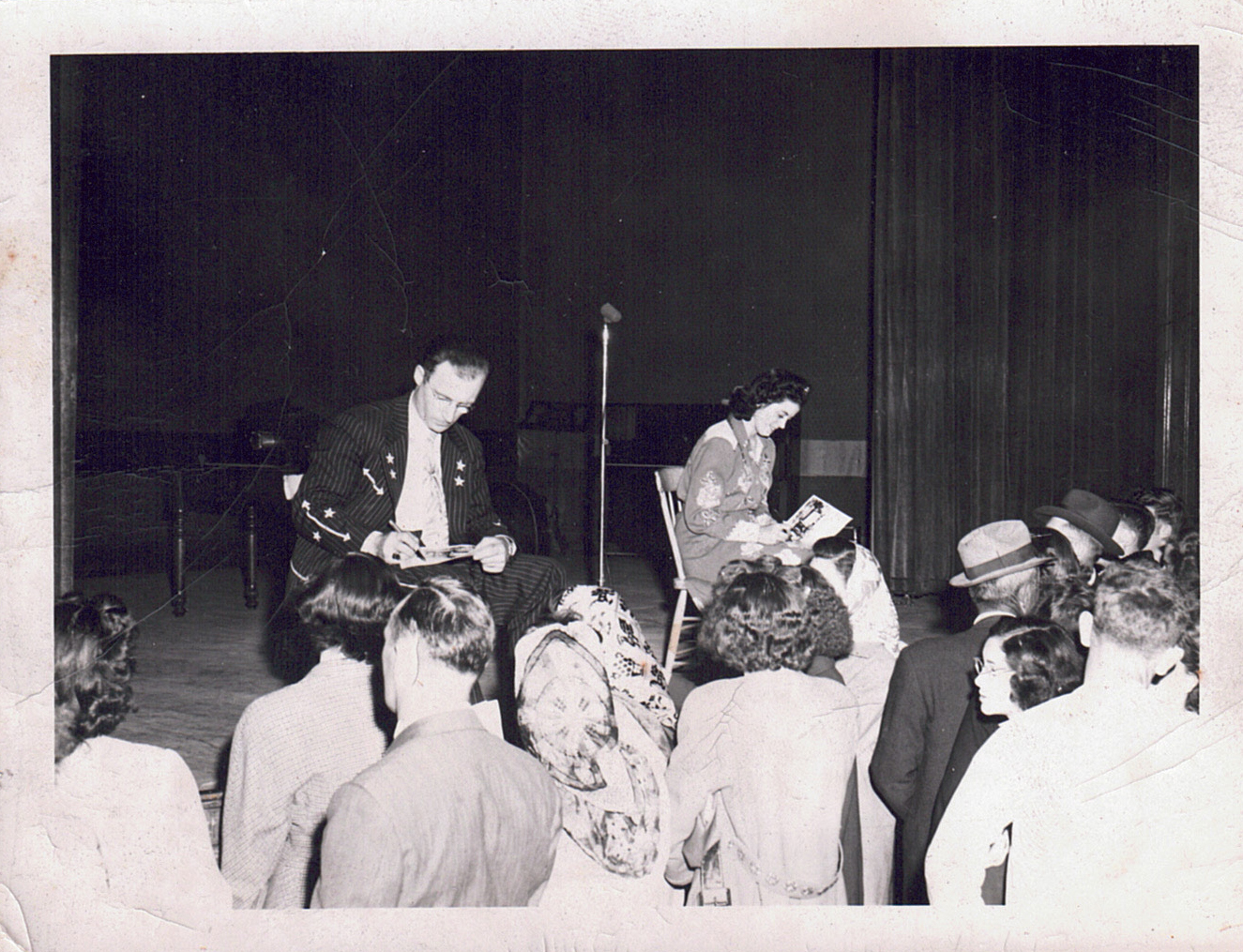
AHEAD OF HIS TIME
Today, artist merchandise is an essential basis of any national musician’s income. However, Doc Williams was far ahead of his time with merchandise. In the early days of his career, even while he was still single, he would sell Doc Williams and the Border Riders Lister Scrap Book on the air of WWVA. “This will tell you who’s married, who’s not married, who’s single and all about us!” Later when he married, he sold Doc Williams and the Border Riders Family Album. Imagine in the radio-era, being able to see your favorite artists. Genius!
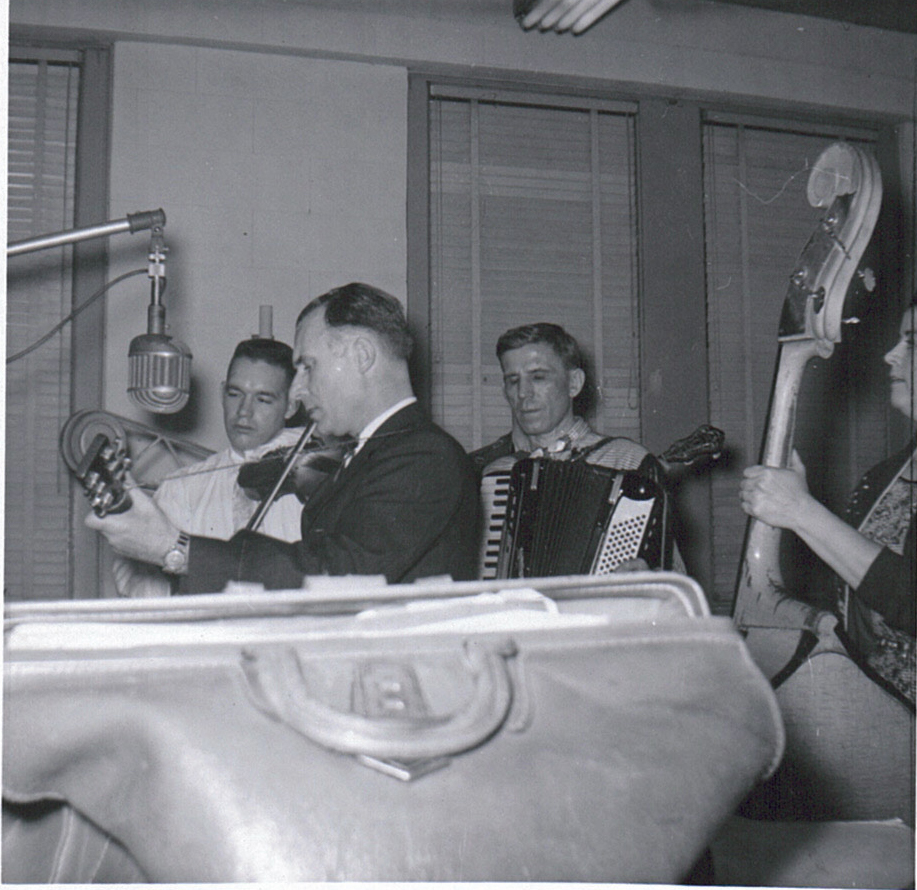
Education was very important to Doc Williams. He understood that there might be many children and people in rural areas who did not have access to guitar teachers. With this in mind, he created the Doc Williams Simplified By-Ear Guitar Course, which featured a helper recording. The books would become quite successful and a business-defining venture in his career.
Doc Williams sold these books on-air in agreement with radio stations across the country. To date, it is estimated that approximately 250,000 of these courses were sold. There is no way to know how many influential guitarists’ careers began because they owned a Doc Williams Simplified Guitar Course.
Renowned Ohio Valley guitarist Roger Hoard was the music director for many of the Jamboree’s reunion shows. Doc and Chickie Williams performed on many of these shows throughout the later part of their career. “I have one of Doc’s Guitar Method [books], which he signed for me in my little music room. I treasure it.”
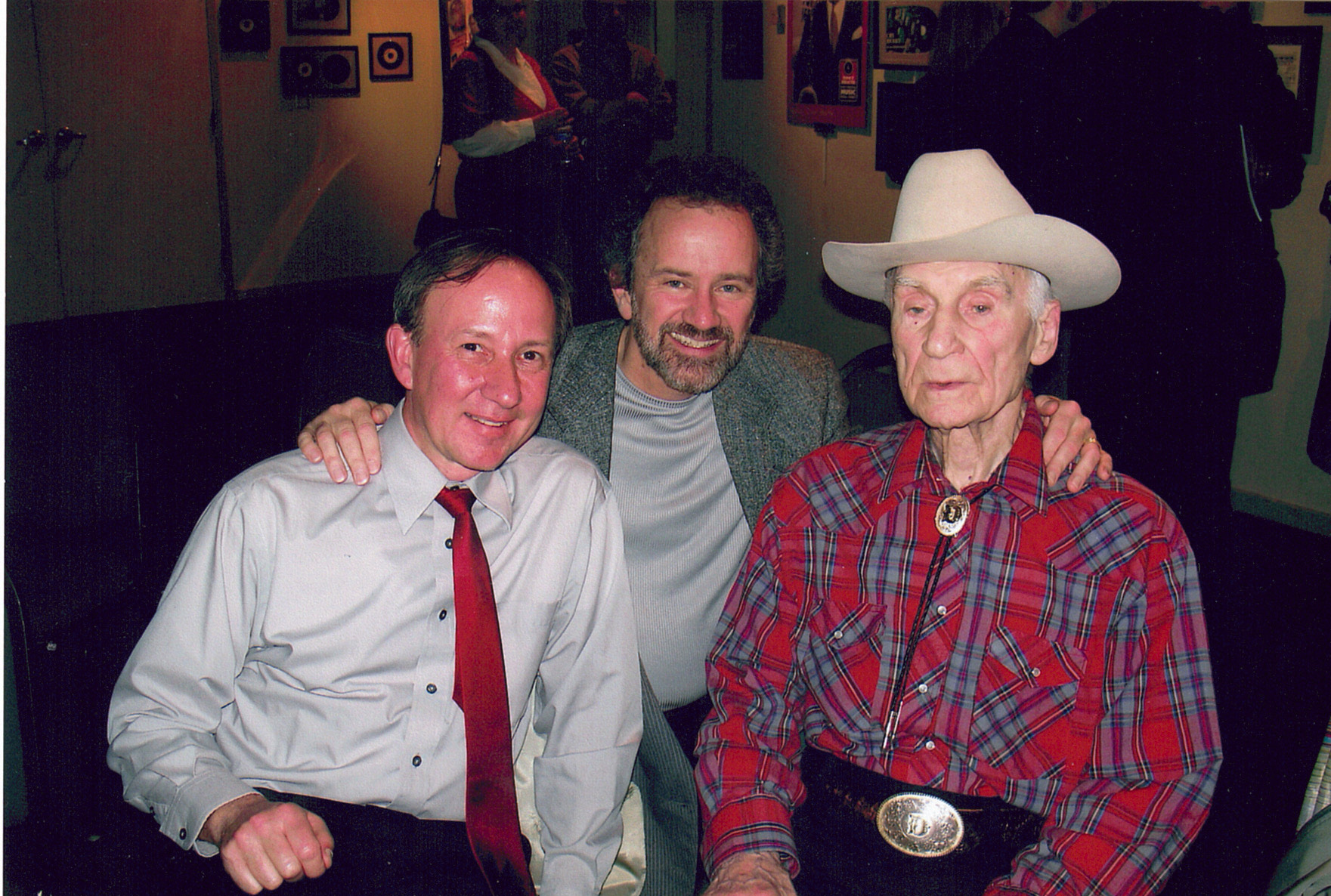
Country music parks were popular attractions in the mid-20th century, especially in Pennsylvania. In 1947, Doc Williams opened one of these parks, Doc Williams’ Musselman’s Grove. It was located in Claysburg, Pennsylvania, about 18 miles from Altoona and 160 miles from Wheeling.
These parks were very primitive compared to today’s concert experience. They featured a relatively simple stage and wooden benches. Doc Williams describes the technical capabilities as two microphones and two horn speakers mounted to trees in his biography. Although basic, Doc Williams was always known for having excellent audio equipment for the time. Wheeling’s own James M. Black built most of this equipment.
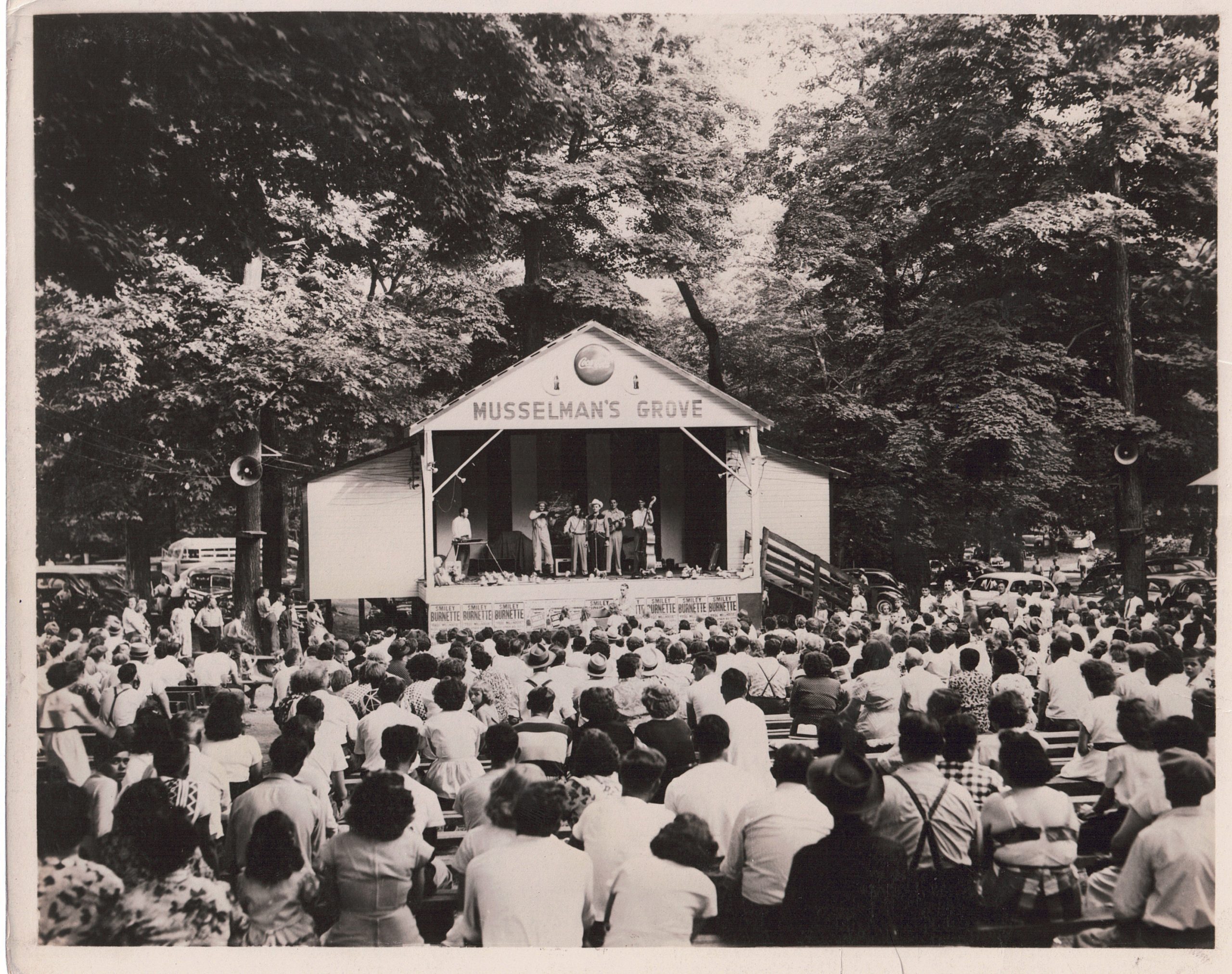
Doc Williams would book his friend Grandpa Jones, Bill Monroe and the Bluegrass Boys, the Sons the Pioneers and other big stars of the day at Musselman’s Grove. Tex Ritter and Jimmy Walker both appeared at Musselman’s Grove and urged Chickie Williams to come to Hollywood for a screen test. She was intelligent, beautiful and had the perfect personality to fit with the Western movies of the day.
After examining the finances, Doc decided that it was no longer worth putting in the time and effort required to operate Musselman’s Grove. For several years, family and staff had been leaving Wheeling early on Sunday morning and arriving back in Wheeling early Monday morning to operate the venue. At times, Doc would make things easier for his family and friends traveling because he was a pilot.
IN THE AIR AND ON THE AIR
It was Doc Williams’ love for flying that led to his involvement with the Scott Airport in Yorkville, Ohio. The airport gave plane rides and would later focus on training pilots who would go on to serve their country after the attack on Pearl Harbor.
Doc Williams was very patriotic. He tried to join the Navy but was unable to serve because of an eye condition. A licensed pilot with well over 1,000 hours in the air, he flew to Maine, Toronto, Montreal, Buffalo, Indianapolis, Nashville, and even flew his mother to Miami and back. Among the entertainers that Doc flew were Hawkshaw Hawkins, Stoney Cooper and Grandpa Jones.
In the early days of television, Doc Williams capitalized on the new communication medium, bringing his country music even more fans. When playing in Altoona, Pennsylvania, he would call WFBG and play in their studio. Every Thursday night during fall and winter in 1957, he had a program on WJAC in Johnstown, Pennsylvania. There were programs on stations in Clarksburg, West Virginia; Reading, Pennsylvania; and even Sudbury, Ontario. There was a show on WTRF in Wheeling that garnered thousands of fan letters, much to Doc’s delight. There was even an experiment with a polka band, The Doc Williams Polka Jets, which was to have had a show in Steubenville, Ohio, but the project never happened.
THE DOC WILLIAMS COUNTRY STORE
Of all of the business ventures, most longtime Wheeling residents are perhaps most familiar with the Doc Williams Country Store. Beginning in 1977, the store was located across the street from The Capitol Theatre and sold western wear, gifts, souvenirs, records, country music items and even Doc’s beloved health food items for a period. During the busy days in Wheeling as tour buses lined Main Street in front of the store and The Capitol Theatre, crowds would pack into the store and overflow onto the sidewalk.
At times, Doc and Chickie could be found working in the store. Doc remembers these days fondly in his biography. “I talked to some folks sometimes for half an hour when we’d gen on a subject and, as a result, it was one of those delightful times in my life when we could really communicate on a personal level with so many fans over that 20-year period. It was really something special.”
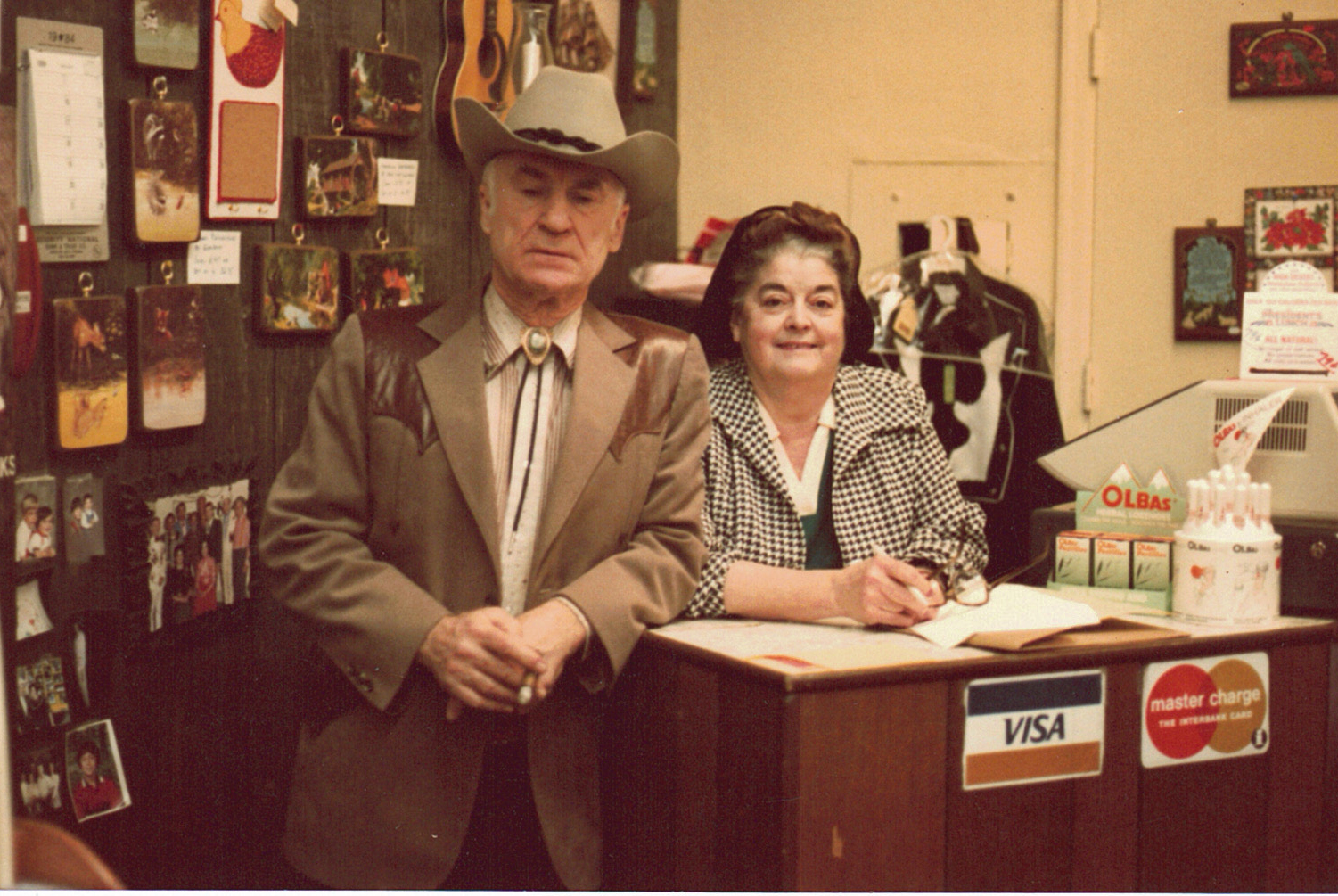
INFLUENCING OTHERS
For many years, Doc Williams employed the Border Riders every week. It was because of this he was able to keep the best musicians of the day. Roger Hoard explains, “He always had great musicians in his band, Marion Martin, Curt Dillie, Gary Boggs, Jack Jackson, and he featured them.”
Lionel Cartwright was nominated in 1990 for ACM New Male Vocalist with Garth Brooks and Clint Black. He had multiple top 10 hits, including the No. 1 Leap of Faith, I Watched It All On My Radio and Give Me His Last Chance. However, his touring career began with Doc and Chickie Williams.
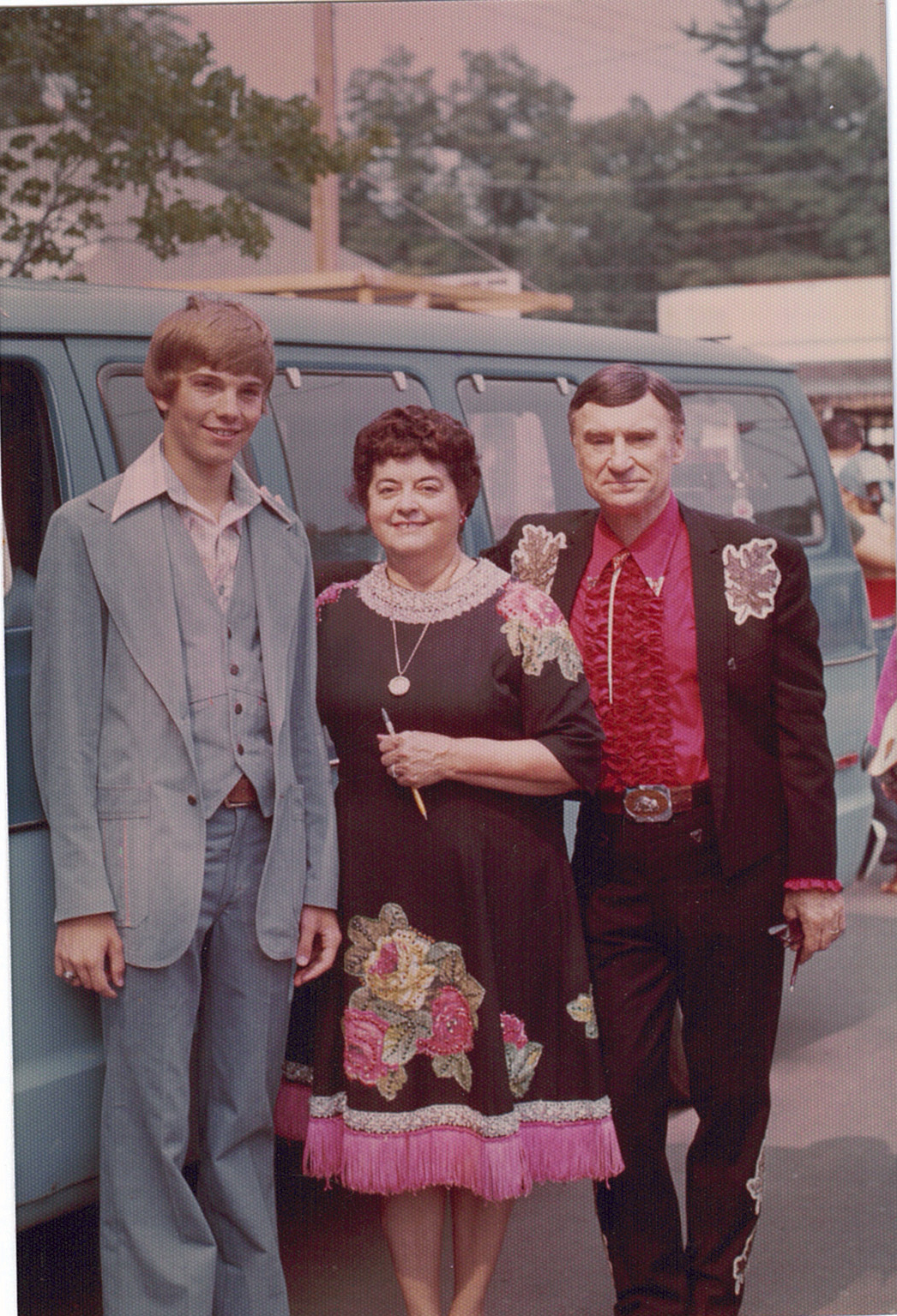
Lionel was born in Glen Dale, West Virginia, and was a band member on Jamboree USA in Wheeling. However, he met Doc Williams in Columbus, Ohio, at WMNI — a radio station that operated a country radio show similar to the Jamboree in Wheeling. It was here that the two Wheeling legends would meet, and the elder would ask permission from Lionel’s father to take him on the road as a member of the Border Riders.
“For a musician in their teens, the ‘pioneer’ side of Doc helped me create the ‘pioneer’ side of my career,” said Cartwright. “Doc was truly a seasoned business professional. It was invaluable to a person of my age. He taught me that you have to have an eye on the financial side and all aspects of the business. I was never one to entirely delegate all details, and Doc taught me that. It was a beautiful education.”
Doc and Chickie Williams were pioneers that paved a path for today’s artists. Today, artists’ producing their own albums at home is inexpensive and not uncommon. That process has even won artists many GRAMMYs and other awards. During the COVID-19 quarantine, many artists continued to work on new projects in home studios and distribute music themselves. Again, Doc was creating his own path here 73 years ago when in 1947, he and Chickie started their own record label, Wheeling Records. For many years, they successfully sold their own records. Their family still owns the master tapes today. True independence — a rarity in the music business.
Does a small record label have its challenges with distribution and promotion? Sure. However, there is some sense of pride that comes from this kind of entrepreneurship.
Despite all of these ventures and many more, Doc always had time for his family. “Dad was one of the sweetest dads and always made time … in his busy schedule for us,” said daughter Barbara Smik. In the end, that’s an enough of an accomplishment in itself.
PIONEERS TAKING THE TRAIL LESS TRAVELED
In 1940, while driving from Memphis, Tennessee, to Wheeling, Doc Williams stopped off in Nashville, Tennesse, for a meeting with Harry Stone the general manager of the Grand Ole Opry. Doc’s beloved wife was pregnant at the time with their first daughter and had already flown back to Wheeling. In that meeting, Stone would offer Doc and Chickie a spot on the WSM’s Grand Ole Opry. The Air Castle of the South. Doc turned the offer down and soon followed his wife to Wheeling.
The legacy that Doc and Chickie created in Wheeling speaks for itself. It is lasting and reaches far beyond the Ohio Valley.
In his biography, Doc states that a few people connected with the Grand Ole Opry offered to help him get a guest spot on the Grand Ole Opry late in his career. However, because of Chickie’s health at the time and the fact that she wouldn’t have been able to perform with him, he did not feel it was right. Always devoted to Chickie, it seems he was very content with his decision and their career together.
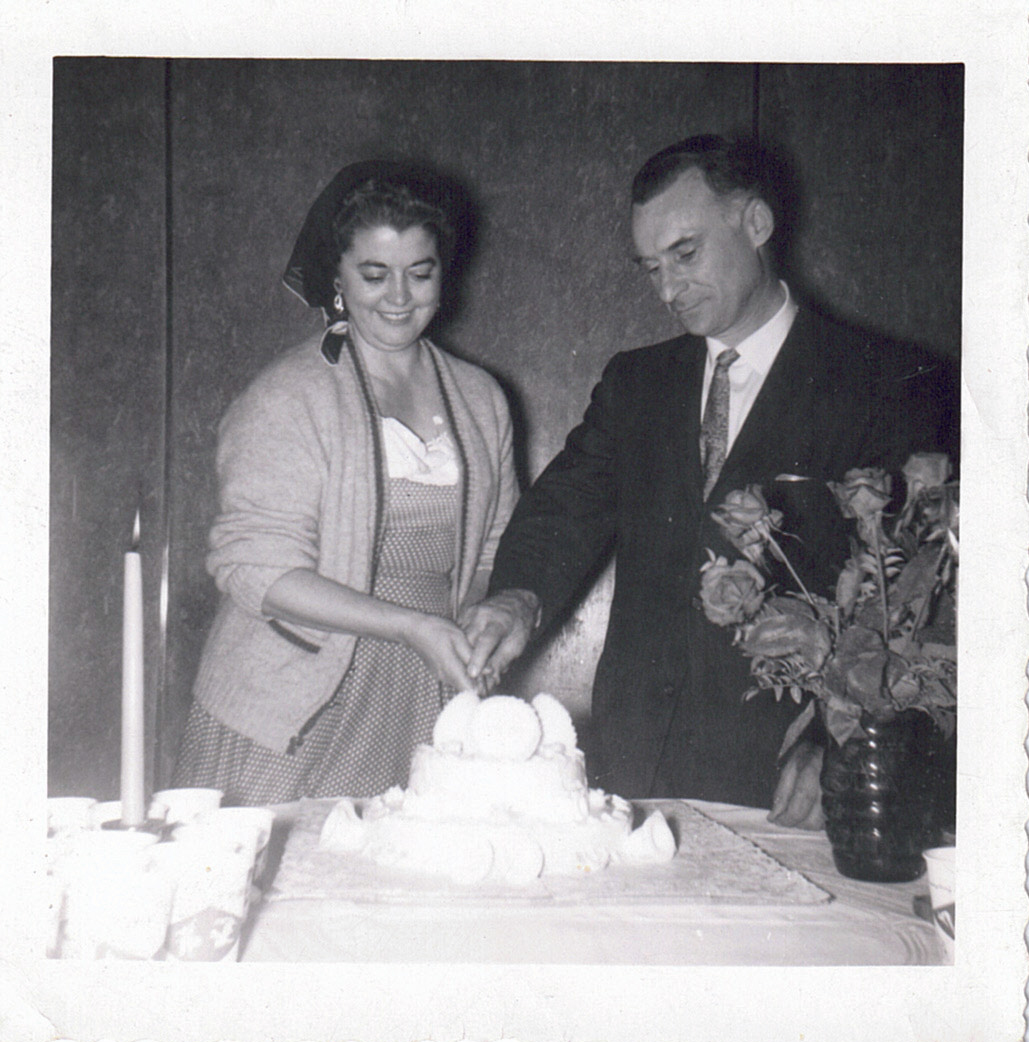
“My dad always felt he could have been more. That’s what drew him to the thought of the Opry. But when you research his life, you see he did achieve so much by taking the path less traveled but he was too kind and humble to admit that,” said Barbara Smik.
When he was young, Andrew Smik, who would take the stage name of Doc Williams, listened to the sounds of Jimmy Rodgers’ signature guitar rhythm and bass runs waft out the window of a neighbor’s home and across the railroad tracks to arrive in the Smik home. He was inspired — it took him far.
Signing off, Doc Williams would say to his fans, “Keep your chin up and keep smiling. So long for now.”
• Kyle Knox, born and raised in Marshall County, West Virginia, is a long-time events industry professional with years of experience working at various venues and events throughout the tri-state area, including The Capitol Theatre, WesBanco Arena, Jamboree In The Hills, Heritage Music BluesFest and the Wheeling Symphony. Before returning to the Wheeling area, Kyle also worked in the events industry in Pittsburgh. Kyle is passionate about music, Appalachian history and culture, nature and local sustainable foods. He is a 2013 graduate of West Liberty University and became a contributing writer for Weelunk in 2020.


